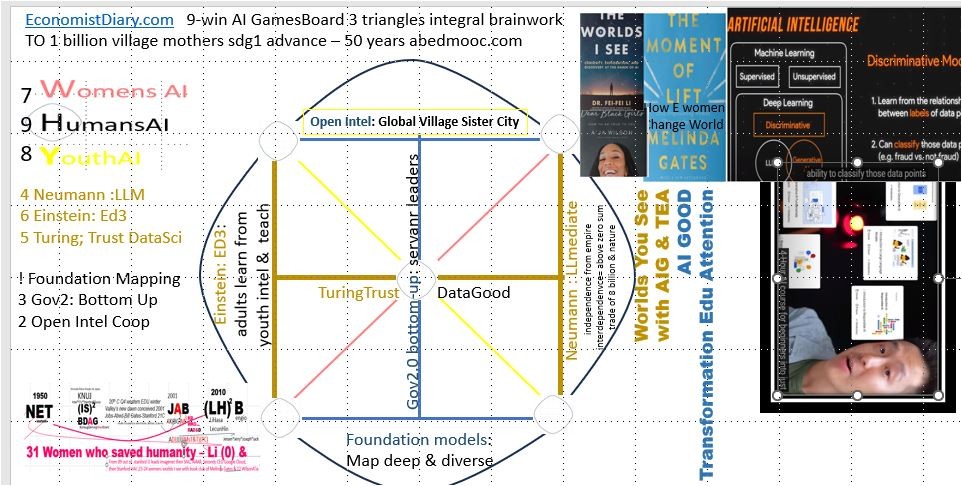last updated sept 2023 - nominations welcome
California President Joe Biden, Director of the Office of Science and Technology Policy Dr. Arati Prabhakarm,, California Governor Gavin Newsom.
Stanford Fei-Fei Li, Robert Reich
AI2 Founding CEO Oren Etzioni,
UC Berkeley’s Doudna Lab Founder Jennifer Doudna, Chemistry Nobel Laureate
Khan Academy Founder Salman Khan,
Founder of the Algorithmic Justice League Dr. Joy Buolamwini,
Humane Tech Co-Founder Tristan Harris,
Common Sense Founder and CEO Jim Steyer
UN - NY Guterres 23 fous climate ai bitech ai
External Members:
Professor Yoshua Bengio, A.M. Turing Award, Scientific Director of Mila — Quebec AI Institute, Full Professor, Department of Computer Science and Operations Research, Université de Montréal
Professor Sandra Díaz, Senior Principal Investigator CONICET and Professor of Ecology Universidad Nacional de Córdoba, Argentina
Professor Saleemul Huq, Director International Centre for Climate Change and Development, Independent University Bangladesh
Professor Fei-Fei Li, Sequoia Professor of Computer Science, Stanford University; Denning Family Co-Director, Stanford Institute for Human-Centered AI, Stanford University
Professor Alan Lightman, Professor of the Practice of the Humanities, Massachusetts Institute of Technology
Professor Thuli Madonsela, Professor of Law, Stellenbosch University
Professor Thomas C. Südhof, Nobel Laureate, Professor, Department of Molecular and Cellular Physiology, Stanford University School of Medicine
United Nations Members:
Chief Scientists from the Food and Agriculture Organization (FAO), United Nations Environment Programme (UNEP), United Nations Educational, Scientific and Cultural Organization (UNESCO), World Health Organization (WHO), and World Meteorological Organization (WMO)
Secretary-General’s Envoy on Technology
Rector, United Nations University
US National- DC Ai.gov Tess DeBlanc-Knowles (co-chair, beginning Aug. 2022), Senior Policy Advisor, National AI Initiative Office, White House Office of Science and Technology Policy
Manish Parashar (co-chair, beginning Oct. 2021), Office Director of the Office of Advanced Cyberinfrastructure, National Science Foundation
Lynne Parker (co-chair, June 2021 – August 2022), was Founding Director of the National AI Initiative Office, White House Office of Science and Technology Policy
Erwin Gianchandani (co-chair, June 2021 – October 2021), Senior Advisor for Translation, Innovation, and Partnerships, National Science Foundation
Daniela Braga, Founder & CEO of DefinedCrowd
Mark E. Dean, Ph.D.
Oren Etzioni, CEO, Allen Institute for AI
Julia Lane, Professor, New York University; CEO, the Coleridge Initiative
Fei-Fei Li, Sequoia Professor of Computer Science at Stanford University and Denning Co-Director of the Stanford Institute for Human-Centered AI (HAI)
Andrew Moore, VP & General Manager, Google Cloud AI & Industry Solutions
Michael L. Norman, Distinguished Professor, University of California, San Diego
Dan Stanzione, Executive Director, Texas Advanced Computing Center/Associate Vice President for Research, The University of Texas at Austin
Frederick H. Streitz, Chief Computational Scientist, Lawrence Livermore National Laboratory
Elham Tabassi, Chief of Staff, Information Technology Laboratory, National Institute of Standards and Technology=================

